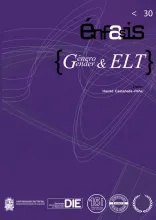
The premise behind the course I was teaching, Language, Culture and Identity, was, and still is, that Colombia is a discriminatory country, and that teachers, no matter what their discipline, should raise awareness of this situation and try to change certain beliefs for the sake of a better society. This course aimed at challenging discriminatory discourses about race, class, sexual orientation and, of course, gender, based on the concept of critical interculturality (Walsh, 2005). These two last subjects roused the most interest, since they questioned the beliefs and experiences of many of the students.
There are three aspects to teaching decolonial theories: a critical understanding of history, a repositioning of emancipatory practices, and a decentering of the colonial episteme (Díaz, 2010). The problem I faced was how to make them understandable to a class with a basic level of English and limited cultural background. The strategies I used were, first, to ask my students questions that would reawaken their prior knowledge and trigger their curiosity. Second, I drew some mind maps to explain where the different discourses about race, class, sexual orientation, and gender came from, in a sort of mini-genealogy. Third, to emphasize the link between theory and practice, I asked them, as a homework assignment, to watch movies and to read newspaper articles about topics we had discussed.